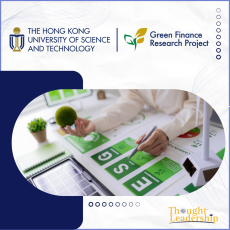With an overall critical and constructive tone, the authors advocate for a fundamental shift in how universities educate students, not merely to transfer knowledge, but to transform mindsets. Their central theme revolves around enabling a new model of learning that prepares students to thrive and lead in the Anthropocene (new age of humans) era, defined by climate instability, ecological degradation, and social inequity. The paper is a visionary call for institutions to cultivate adaptive, responsible, and systems-thinking individuals capable of co-creating sustainable futures.
The authors employ the “idealised design” methodology to envision what a university suited for the Anthropocene should look like and work backwards from this ideal. They argue that traditional universities, bound by disciplinary silos and outdated pedagogical models, are ill-equipped to address the complex, interconnected crises of our time. The paper proposes a transformative model of education, shifting from “Learning 1” (problem-solving within fixed mental models) and “Learning 2” (expanding alternatives without challenging core assumptions) to “Learning 3”: deep mindset change, where learners critically revise their foundational values and assumptions. Examples from economics education illustrate this trajectory, showing how conventional teachings must evolve to embrace ecological, ethical, and holistic worldviews. Shrivastava and Zsolnai emphasise whole-person development and integrating transdisciplinary knowledge, arts, spirituality, and emotional intelligence into curricula. They also showcase pioneering initiatives, such as Schumacher College’s experiential learning and Visva-Bharati University’s integration of nature and spirituality, as models for this transformative vision.
To catalyse this shift, the authors recommend actionable steps at multiple levels.
First, universities should conduct internal audits focused on purpose, not just performance, to assess their readiness to engage with Anthropocene challenges. These audits can inform stakeholder-engaged strategic planning that aligns institutional missions with sustainability and societal well-being.
Second, reward systems should be restructured to recognise faculty contributions to community engagement, sustainability, and interdisciplinary collaboration.
Third, universities must develop new funding models that reduce dependence on declining public resources and student fees. Fourth, academic cultures must be reshaped to encourage innovation, civic engagement, and ethical responsibility. Specifically, policymakers and funders should incentivize research that co-produces knowledge with communities and addresses real-world problems. The ultimate recommendation is clear: universities must become change-agents, fostering student mindsets prioritising planetary health, inclusive progress, and long-term ecological and social resilience. By embracing this transformation, higher education can regain its stature as a moral compass and a force for collective flourishing in a fragile world.
FULL ARTICLE HERE





